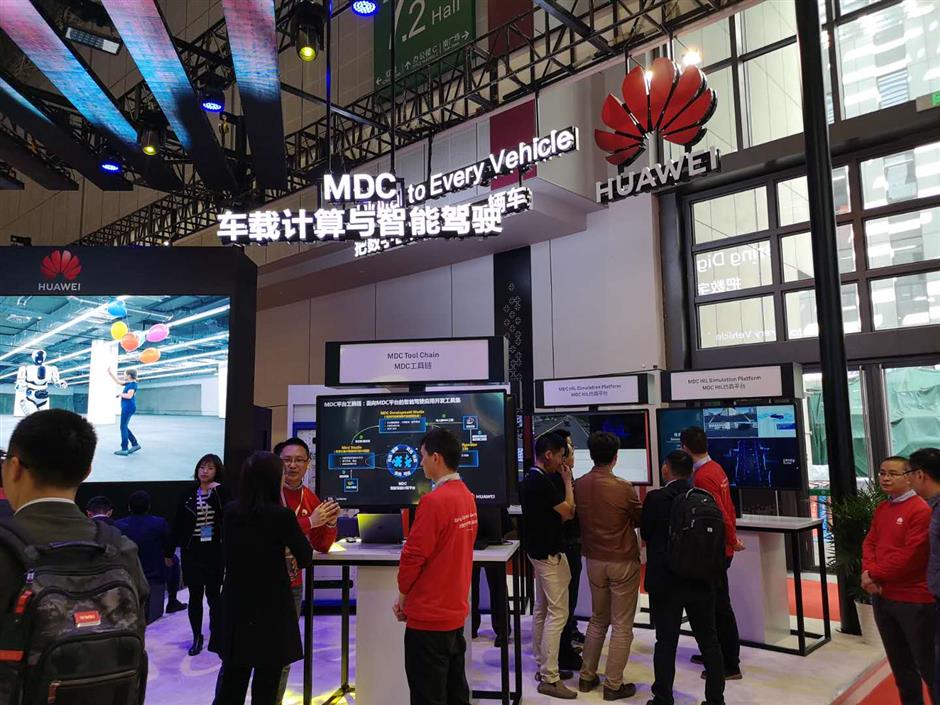Shanghai Auto Show highlights tech transformation

Huawei's booth is crowded with visitors. It's the first time for Huawei to attend the auto show.
Artificial intelligence and 5G mobile technologies — set to transform the global car market and change our daily lives — were showcased at the Shanghai Auto Show on Tuesday.
Features at this year's show, the industry's biggest marketing event in China of the year, range from AI driver assistance to driverless trucks and buses.
In addition to bringing together leading local and international automakers, the show also attracted big names such as Huawei, China Mobile, Bosch, ZF, and local startup Westwell.
The media is getting a sneak preview of the show's offerings before it opens to professional visitors on Thursday and the general public on Saturday.
Huawei, attending for the first time, displayed its intelligent driving computing platform with self-developed AI chips and 5G-related infrastructure. It supports a “smooth upgrade" from L2 (vehicles with smart features) to L5 (fully self-driving).
Bosch, the world’s leading auto parts vendor, showed off a concept self-driving bus which it says will “shape the new future of electrified, connected, automated and personalized mobility.”
Bosch’s advanced driver assistance systems have seen their business in China grow 30 percent in 2018 year on year and the company is looking for Chinese partners to help shape a new ecosystem for its mobility services.

Shanghai startup Westwell's Q-Truck, a new-energy self-driving truck, will be used in Belt and Road countries and regions.
Shanghai-based AI startup Westwell displayed its self-driving new-energy truck, which uses AI technologies in visual recognition, environment-detection and extreme precision positioning.
The truck, with an AI-featured chip developed by Westwell, is expected to be used in ports and mining operations, including in Belt and Road countries and regions, from later this year. It can be fully charged within two hours.
Its Q-Truck is a totally “new AI device” to meet special demands in various areas, said Westwell CEO Tan Limin.
German car parts maker ZF made the world debut of its AI driver assistance system, coPILOT.
“We’re pursuing strategies that resonate with China’s goal of clean, safe and affordable transportation solutions and we'll continue to help improve the safety and experience of the daily commute,” said CEO Wolf-Henning Scheider.
“China is at the forefront of adopting innovation on a fast and broad scale and we’re confident of seeing a prosperous automotive and mobility market here for many years to come,” Scheider said.
Based on its AI platform for semi-autonomous driving and chipmaker NVIDIA's auto solutions, coPILOT will be ready for volume production from 2021.
Scheider expected the Asia Pacific region to contribute 30 percent of global sales in the future through continuous efforts in localizing its production and research and development capacity.
Last year China accounted for about 17 percent of ZF's global revenue. More and more products for the global market are also coming from the China team, he said.
Expansion projects for four of its existing plants for chassis components and transmission components are expected to be completed in the next one and half years.
ZF now has 32 manufacturing plants in 24 Chinese cities.















